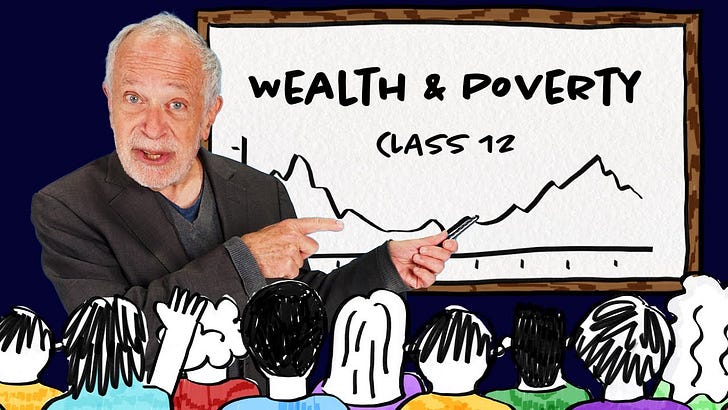Friends,
Good morning again, class!
This week we examine the effects of climate change on inequality. It hasn’t gained nearly the attention it should.
Just click below, and you’re back in my class.
Among the questions I’ll be addressing today are: How do environmental issues connect to wealth/income, racial, and geographic inequality? What role does environmental policy play in addressing this inequality? How will different communities be affected by climate change? What role do social movements play in addressing environmental justice issues?
Recommended readings (just click on the link):
Brad Plumer and Nadja Popovich, “How Decades of Racist Housing Policy Left Neighborhoods Sweltering,” The New York Times, August 24, 2020
Vann R. Newkirk II, “Fighting Environmental Racism in North Carolina,” The New Yorker, January 16, 2016
Andrew Winston, “What 1,000 CEOs Really Think About Climate Change and Inequality,” Harvard Business Review, September 24, 2019
******
So glad you can be here today. As before, if you’re receiving this free of charge, please consider a paid subscription or paid gift subscription so we can do even more.



Yesterday, SCOTUS 5-4, in another miscarriage of justice, ruled against Navaho access to water rights. The tribe sued the federal government in 2003, seeking to compel it to assess the tribe’s needs and devise a plan to meet them. The states of Arizona, Colorado and Nevada intervened in the suit, seeking to protect their own access to water from the Colorado River system. At issue is an 1868 treaty under which the federal government guaranteed the nation’s agricultural needs, which the Navajo Nation argues includes water rights.
Tribal governments in the suit also cited to the so-called Winters doctrine, based on the 1908 Winters v. United States court case, which established that the creation of a Native American reservation also reserves the water necessary for its purposes.
.The region's water supply is dwindling as its population and agricultural output have boomed. The river, which provides water for 40 million people across the entire Southwest, is already overtapped. The seven states that rely on the river have long been embroiled in litigation over the body of water.
“Where does the Navajo Nation go from here?” Gorsuch wrote in a dissent, joined by 3 liberal justices. “To date, their efforts to find out what water rights the United States hold for them have produced an experience familiar to any American who has spent time at the Department of Motor Vehicles. The Navajo have waited patiently for someone, anyone, to help them, only to be told (repeatedly) that they have been standing in the wrong line and must try another.”
In Navaho country the wind grows cold.....
https://www.youtube.com/watch?v=2sF8LIgLAEc
Responsible repopulation.
Water conservation
Air quality
Tone down noise
Limit excessive lighting
Best agricultural practice
Move away from wood combustion, conserve forest/plain natural purpose.
Thoughtfulness, respect.
These come to mind. Worth working on.